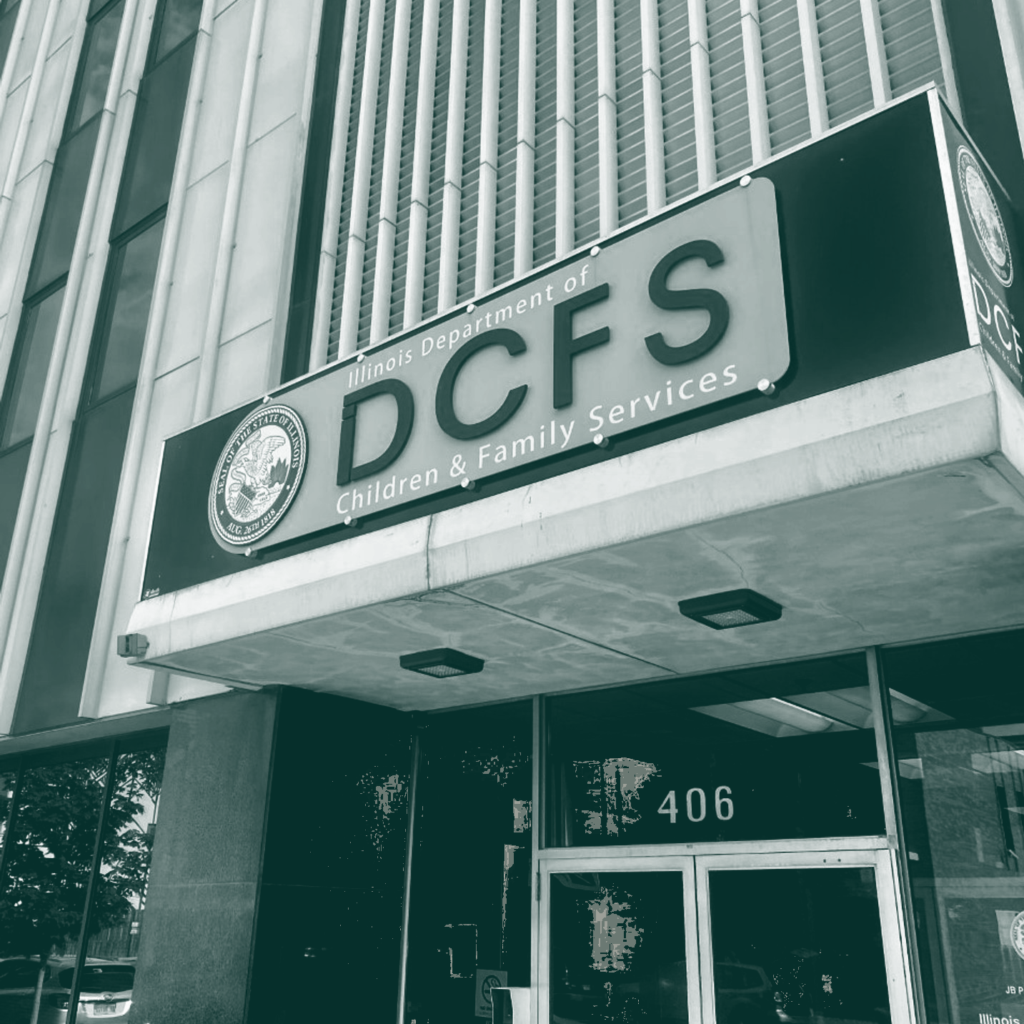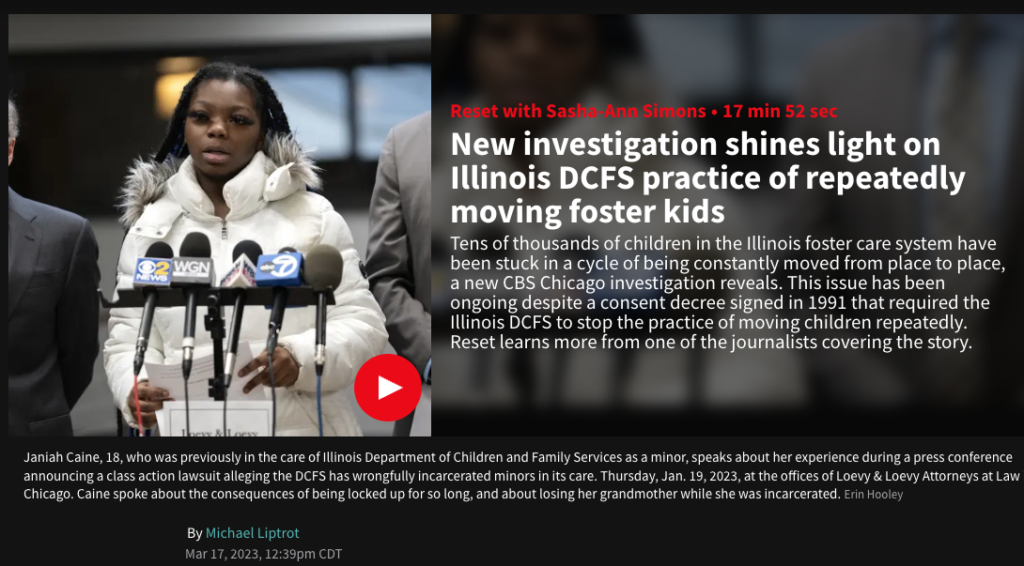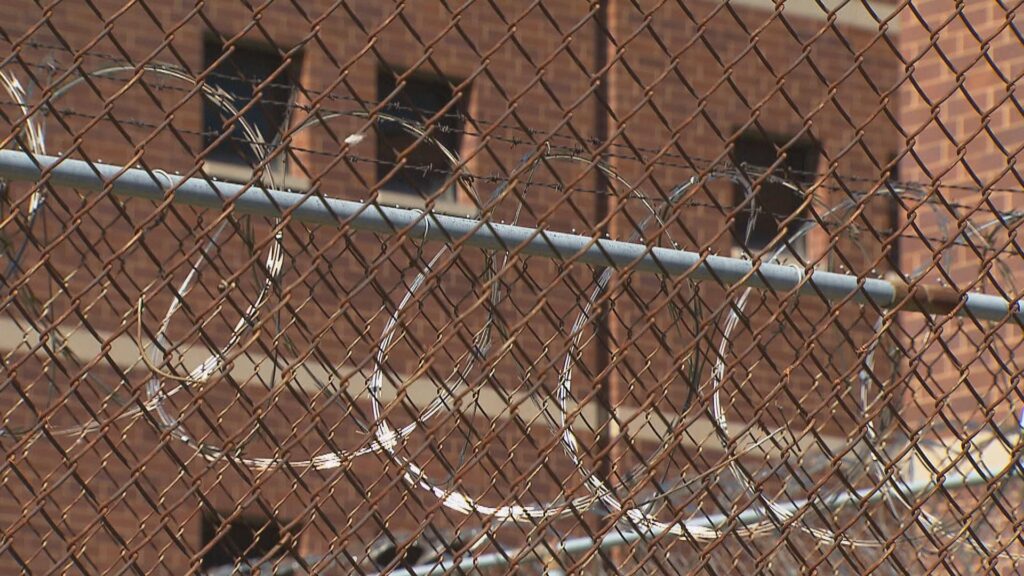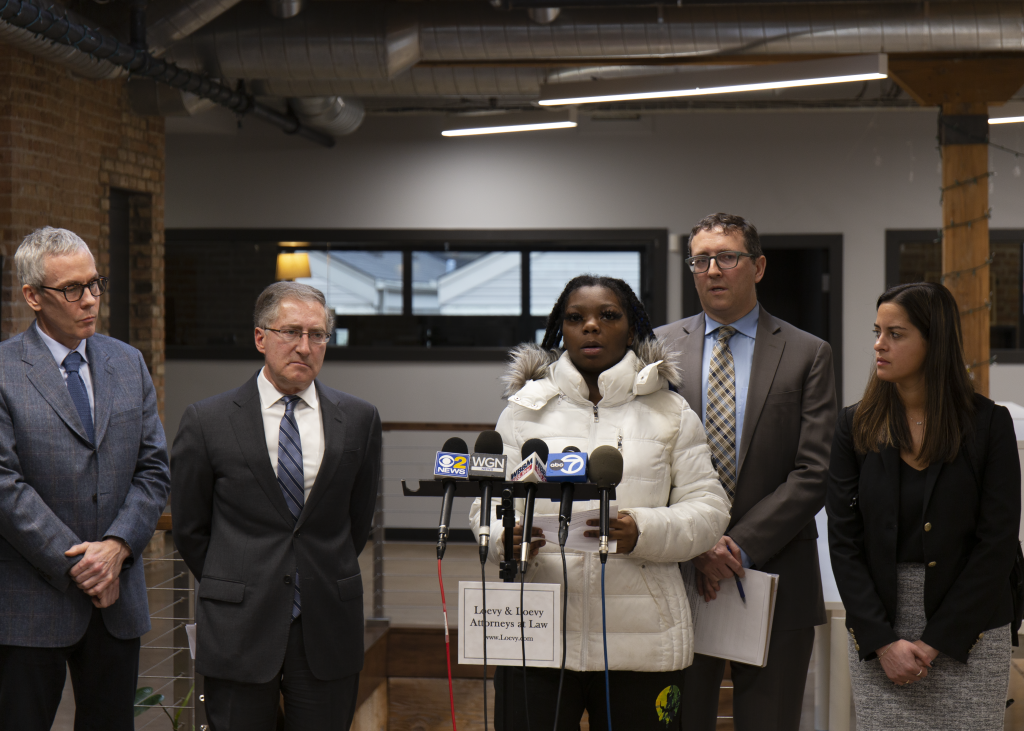Home » Class Actions » Class Action – Government Accountability » DCFS Class Action
DCFS Class Action
Illinois’s Department of Children & Family Services (DCFS) is charged with protecting the state’s most vulnerable children. Yet hundreds of kids, many as young as nine, are being kept in juvenile jails or locked psychiatric hospitals for weeks or months after a judge has ordered them released. Some are held simply because DCFS “can’t find a placement.” Others wait while the agency processes paperwork that it should have completed long before. The result is trauma, lost schooling, and a stark message: the system meant to help has become a jailer.
Loevy + Loevy represents children and court-appointed guardians in Golbert v. DCFS, an active federal class action in Chicago. We allege DCFS’s practice of detaining kids past their lawful release dates violates the Fourth and Fourteenth Amendments and state child-welfare statutes.
Our work is contingency-based. You pay nothing unless we win. If you know a child who was kept in a juvenile facility, psychiatric hospital, or detention center after a judge ordered release, take two minutes to complete the secure form below. We will contact you only if we believe we can help.
At a Glance
Who is affected?
Children statewide, and their guardians, who remained in juvenile jail, detention, or locked psychiatric care after a judge signed an order for release or transfer.
What it’s about
DCFS allegedly leaves kids locked up for days, weeks, or months while searching for foster beds or group-home slots, despite clear court orders. The suit seeks damages for emotional and educational harm and an injunction mandating timely placement.
Current stage
Active litigation in the Northern District of Illinois (Case No. 1:23-cv-00300). Discovery is underway.
Your rights
Class members may seek monetary damages for each overstay day, reimbursement for therapy and educational services, and a court order requiring DCFS to end the practice.
Cost
No up-front fees. We advance all costs, paid only from a favorable settlement or verdict.

How you can protect a child's rights
If a child you know was ordered released from juvenile custody or psychiatric care but remained locked up, tell us what happened through the secure form below. Your submission is free and confidential; we will reach out only if your experience fits the class
Submission Form
FAQs
Will this lawsuit affect the child's current placement or services?
No. DCFS cannot cut services because someone asserts legal rights; such retaliation would create new liability and can be stopped by court order.
Do I need official records to join?
Exact court orders are not required to start. We can obtain records once we know the child’s name, docket number, and facility.
What if the overstay happened years ago?
Illinois law typically allows claims up to two years after the child turns 18, but earlier action is better. Contact us even if you’re unsure about timing.
How much could a child receive?
Damages may include a dollar amount for every extra day locked away, plus reimbursement for counseling, missed schooling, and other harm. Exact sums depend on case facts and court rulings.
Can the child's identity stay private?
Yes. Federal rules permit minors to proceed under initials; court filings will not list full names publicly.
What will the lawsuit cost us?
There is no upfront fee. Loevy + Loevy pays all litigation expenses and collects a fee only if we secure compensation or injunctive relief for the class.
Key Pleadings
Recent News of the DCFS Class Action

Why Join a Class Action?
Joining a class action means shared costs, greater leverage, and a real chance to hold wrongdoers accountable—all without taking on the fight alone. And you pay nothing unless we win.i





